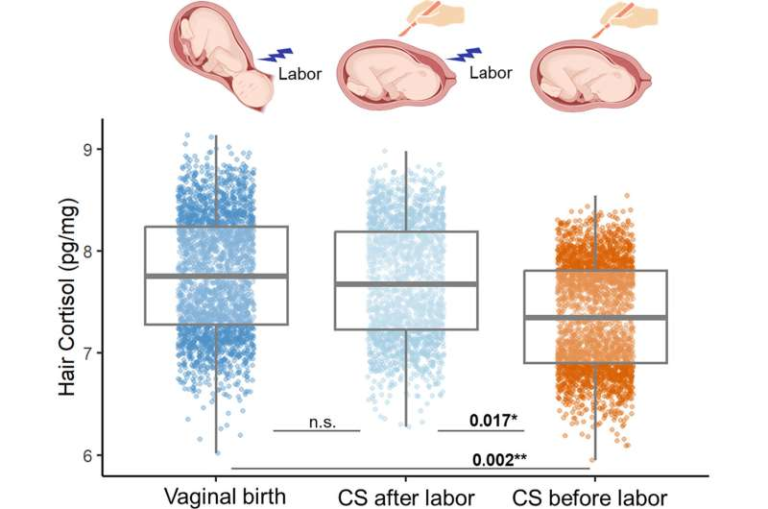Kimchi and Health: New Research Highlights Surprising Benefits

Kimchi, the traditional Korean dish made of fermented vegetables, has long been celebrated in Korea for its flavor and cultural significance. But recent scientific work has added new weight to the idea that kimchi may offer more than just taste.
A systematic review and meta-analysis published in Nutrition Reviews looked closely at the health effects of fermented kimchi and found measurable improvements in blood sugar, blood pressure, and triglyceride levels. This adds to a growing body of evidence that fermented foods may play an important role in cardiometabolic health.
In this article, we’ll break down the findings of this study in detail, explain why they are significant, and also dive into some broader background information on kimchi—covering its nutritional profile, how it’s made, and what science says about its potential role in human health.
The Research at a Glance
The review, led by researchers from the College of Agriculture, Health and Natural Resources (CAHNR) at the University of Connecticut and their collaborators, compiled findings from nine human studies conducted between 2011 and 2023. All of these studies investigated fermented kimchi specifically, ensuring consistency in comparing results.
The research team focused on whether kimchi consumption influenced important cardiometabolic markers like fasting blood glucose, triglycerides, and blood pressure.
Here’s what they found when comparing participants who ate fermented kimchi with those who did not:
- Fasting glucose decreased by an average of 1.93 mg/dL.
- Triglycerides dropped significantly, with a reduction of 28.88 mg/dL.
- Systolic blood pressure fell by 3.48 mmHg, while diastolic blood pressure decreased by 2.68 mmHg.
For context, in clinical practice even a reduction of 5 mmHg in systolic blood pressure is considered a meaningful change. So, for a dietary change alone—not medication—to bring about nearly 3.5 mmHg in systolic reduction is noteworthy.
The Sodium Puzzle
One of the most surprising parts of the findings is related to kimchi’s sodium content. Traditionally, kimchi is made with salt to help preserve the vegetables during fermentation. High sodium intake is usually associated with increased risk of hypertension (high blood pressure).
Yet, this review showed the opposite—blood pressure actually went down among those eating fermented kimchi. The researchers suggest that other components of kimchi, such as lactic acid bacteria and beneficial bioactive compounds, may counteract sodium’s usual hypertensive effects. This makes kimchi an interesting example of how a food’s overall composition can influence its health impact in ways not explained by a single nutrient.
Who Was Studied?
All of the studies included in the review were conducted in Korea, and the participants were largely from Asian populations. This is important because dietary habits, genetics, and lifestyle factors can differ widely across the world.
For this reason, the researchers emphasize that more studies are needed in other countries, including the United States, to determine whether these benefits extend to more diverse populations.
Why Fermented Kimchi Only?
The authors made sure to include only studies that looked at fermented kimchi rather than just its raw ingredients. That’s because fermentation transforms the nutritional and microbial profile of the dish. Beneficial bacteria such as Lactobacillus, Leuconostoc, and Weissella become abundant during the fermentation process, and these may play a central role in the health effects observed.
Non-fermented ingredients like raw cabbage or radish, while nutritious, do not contain the same live microorganisms or fermentation byproducts. By narrowing the review to fermented kimchi, the researchers ensured they were evaluating the unique properties that fermentation provides.
Global Implications
Kimchi has already become popular worldwide, especially in the United States where it’s now widely available in grocery stores. The publication of this meta-analysis makes the scientific evidence behind kimchi more accessible to international researchers and health professionals.
The findings suggest that kimchi could potentially be used as a dietary strategy to improve blood sugar regulation, lipid profiles, and blood pressure—key factors in preventing metabolic syndrome, diabetes, and cardiovascular disease.
Still, the study authors stress that the evidence is not yet strong enough to make universal recommendations. More intervention trials in different populations are needed.
Kimchi Basics: What’s in It?
Kimchi isn’t one single recipe—it’s a category of dishes. However, the most common base is napa cabbage or Korean radish, which are salted and then mixed with seasonings such as chili powder, garlic, ginger, scallions, and fish sauce. The mixture is then packed into jars or containers to ferment for days or weeks.
This process produces a food that is:
- Rich in dietary fiber
- High in vitamins A, B, and C
- Contains essential minerals like calcium, iron, and potassium
- Loaded with antioxidants and bioactive compounds
- Alive with probiotic bacteria that support gut health
How Fermentation Changes Food
Fermentation is not just about preserving vegetables. It’s a biochemical process where microorganisms—mainly lactic acid bacteria—break down sugars into lactic acid. This acid lowers the pH of the food, preventing harmful bacteria from growing while promoting the growth of beneficial microbes.
The benefits of fermentation go beyond preservation:
- Improved digestibility: Fermentation can reduce compounds that make digestion harder, while increasing the availability of nutrients.
- Gut microbiome support: Fermented foods can introduce live bacteria that help balance the intestinal microbiota.
- Potential blood pressure regulation: Some studies suggest that probiotics may help the body handle sodium better or promote vascular relaxation.
- Anti-inflammatory potential: Fermented foods often contain compounds that may lower inflammation.
Past Research on Kimchi and Health
This new review builds on earlier findings. A number of smaller clinical trials in Korea have already suggested benefits:
- In overweight or obese adults, fermented kimchi reduced body fat, waist-to-hip ratio, and fasting blood glucose more than fresh (unfermented) kimchi.
- In people with prediabetes, fermented kimchi improved insulin sensitivity and reduced cholesterol levels.
- Lower-sodium versions of kimchi have shown neutral or positive effects on blood pressure, which adds to the puzzle of sodium’s role.
Not every study agrees, though. Some large observational surveys have found no significant differences in glucose, lipids, or blood pressure across different levels of kimchi consumption. That’s why meta-analyses like this one are important: they bring together multiple studies to look for consistent effects.
Nutritional Cautions
Despite these promising results, kimchi is not free from potential downsides:
- Sodium load: People with salt-sensitive hypertension or kidney disease should still be cautious.
- Stomach cancer risk: Some research has linked very high consumption of salted and fermented foods, including kimchi, to stomach cancer. This may be due to the combination of salt and certain fermentation byproducts, though the evidence is not conclusive.
- Food sensitivities: As a fermented food, kimchi can trigger symptoms in people who are sensitive to histamines or have certain gut disorders.
Moderation is key. A few servings per week might provide benefits without significant risks, but this will vary depending on an individual’s health profile.
Why This Research Matters
What makes this new review important is not only the results themselves but also the way it organizes and evaluates the evidence. Before this, studies on kimchi were scattered and not widely known outside Korea. Now, with a peer-reviewed meta-analysis in an international journal, health professionals and scientists around the world can take a closer look.
It also shows that traditional foods like kimchi, often seen just as cultural dishes, can have measurable health impacts worth exploring in more depth.
What Comes Next?
The next logical step is to conduct intervention trials in Western populations with diverse genetic and dietary backgrounds. This will help determine whether the findings are universal or specific to Korean diets and lifestyles.
Researchers also suggest looking at the different types of kimchi, fermentation times, and ingredient variations. Not all kimchi is the same, and these factors could influence the health outcomes.
Key Takeaways
- Fermented kimchi is associated with lower blood sugar, triglycerides, and blood pressure.
- The reductions observed—around 2 mg/dL for glucose, nearly 29 mg/dL for triglycerides, and 3–4 mmHg for blood pressure—are meaningful.
- Despite its high sodium content, kimchi did not increase blood pressure and may even lower it.
- Most studies were done in Korean populations, so the results may not apply everywhere.
- More research is needed, but kimchi shows promise as a functional food that could contribute to better cardiometabolic health.





